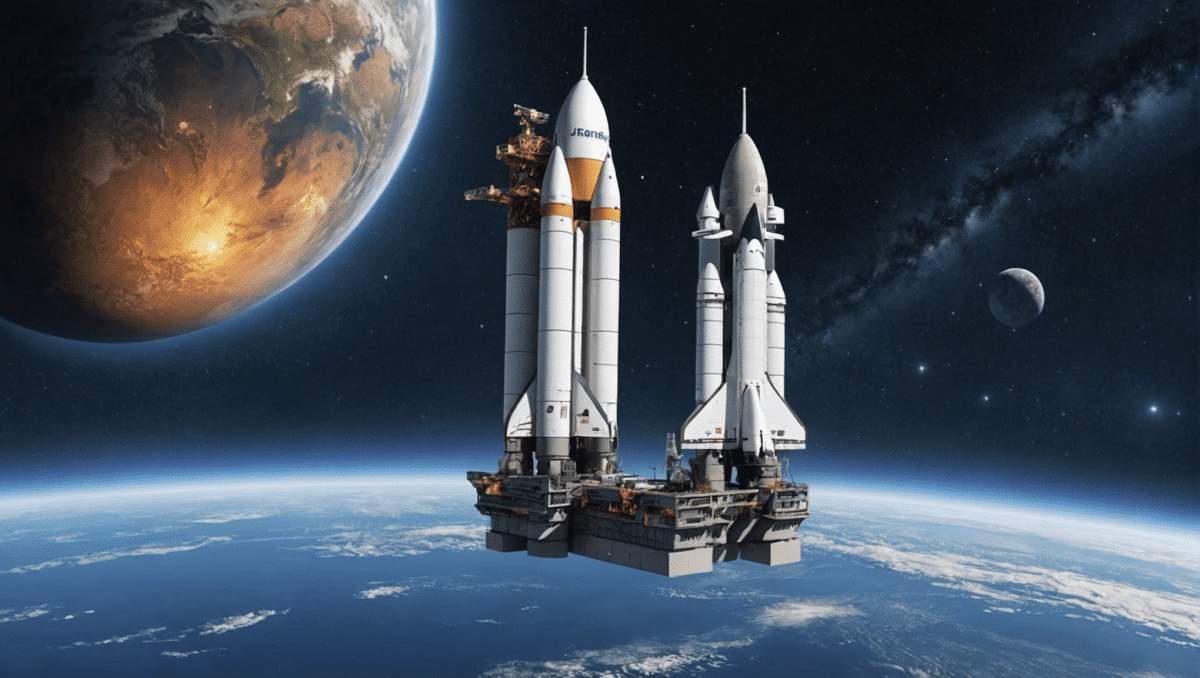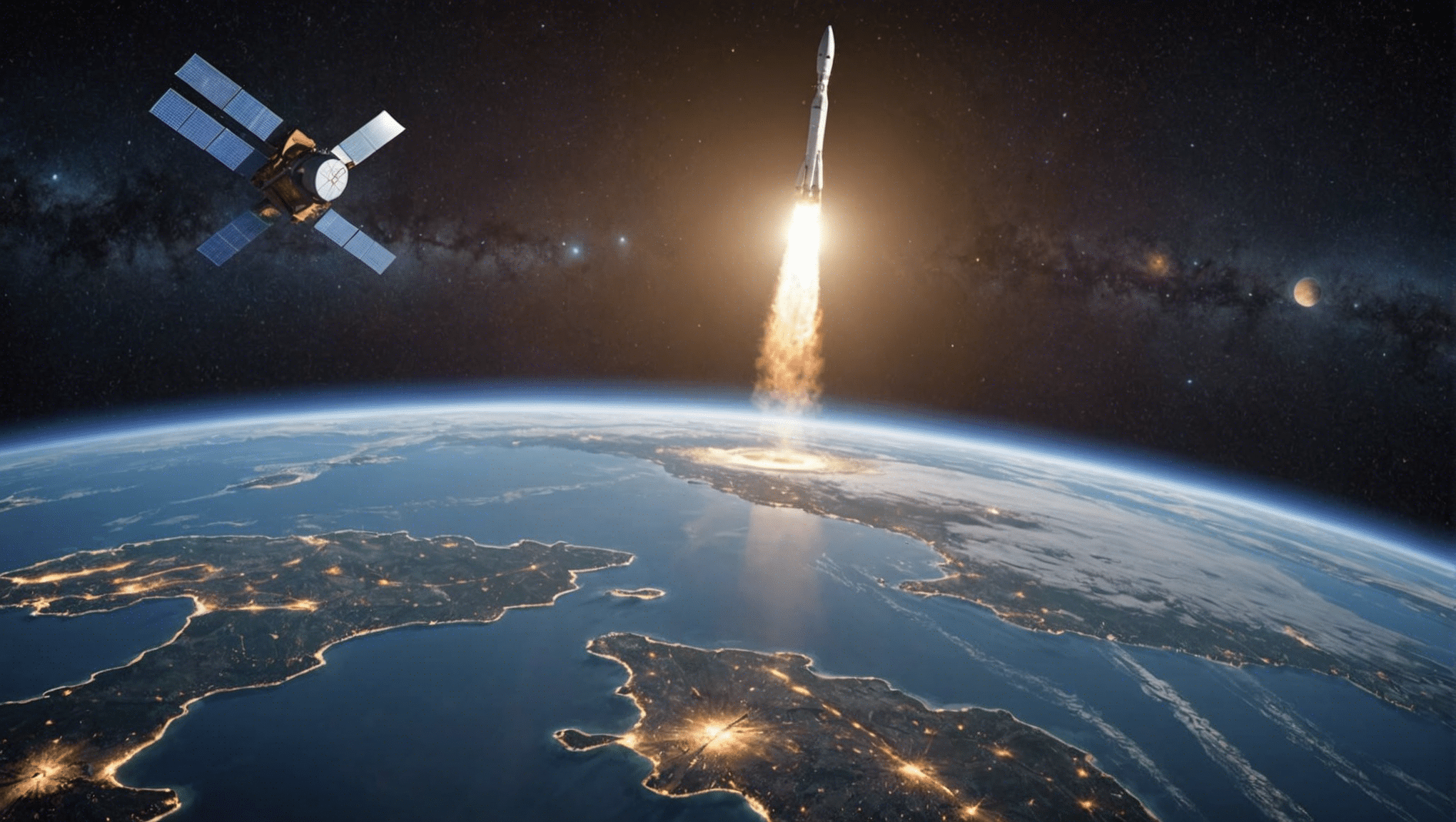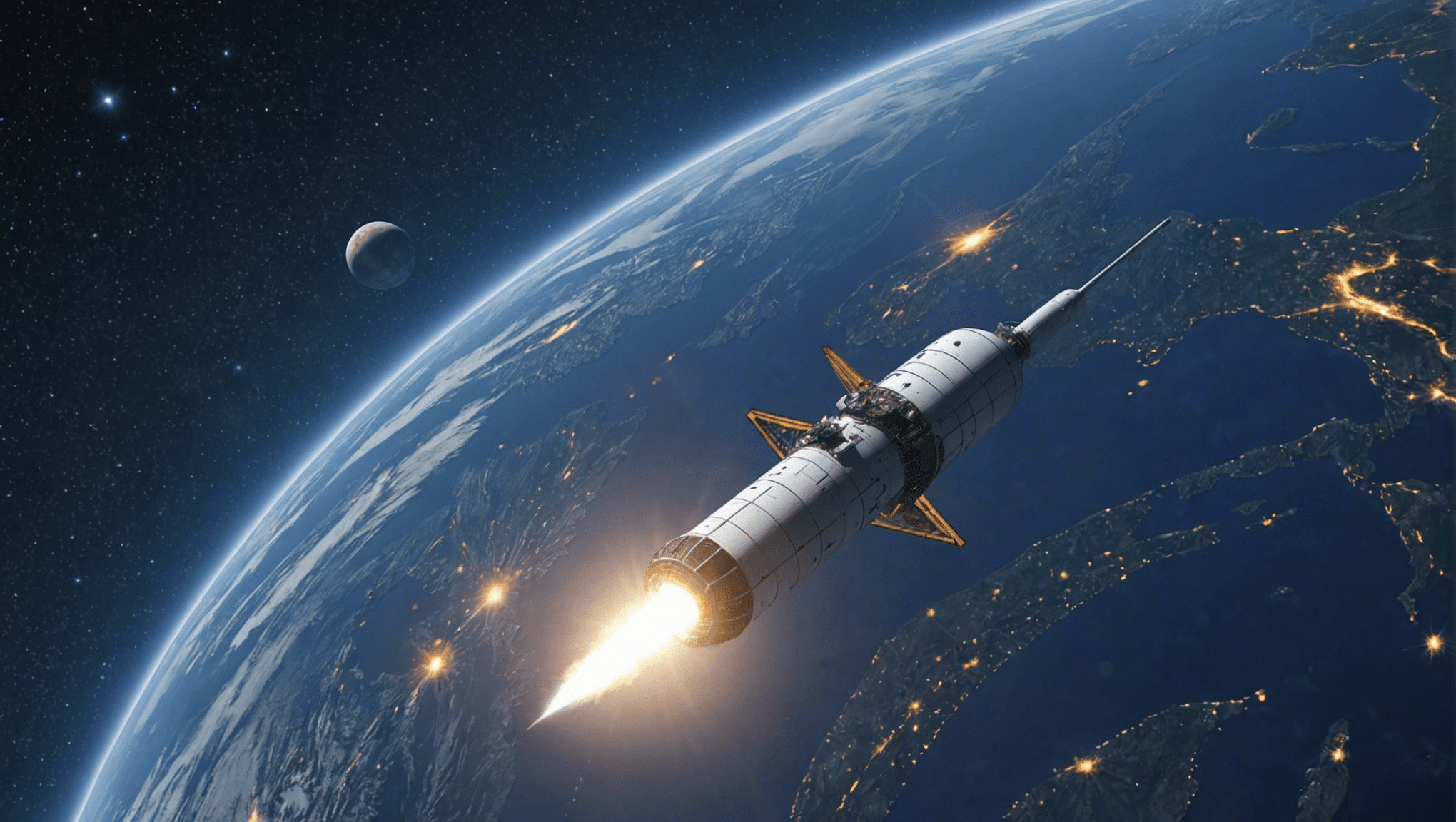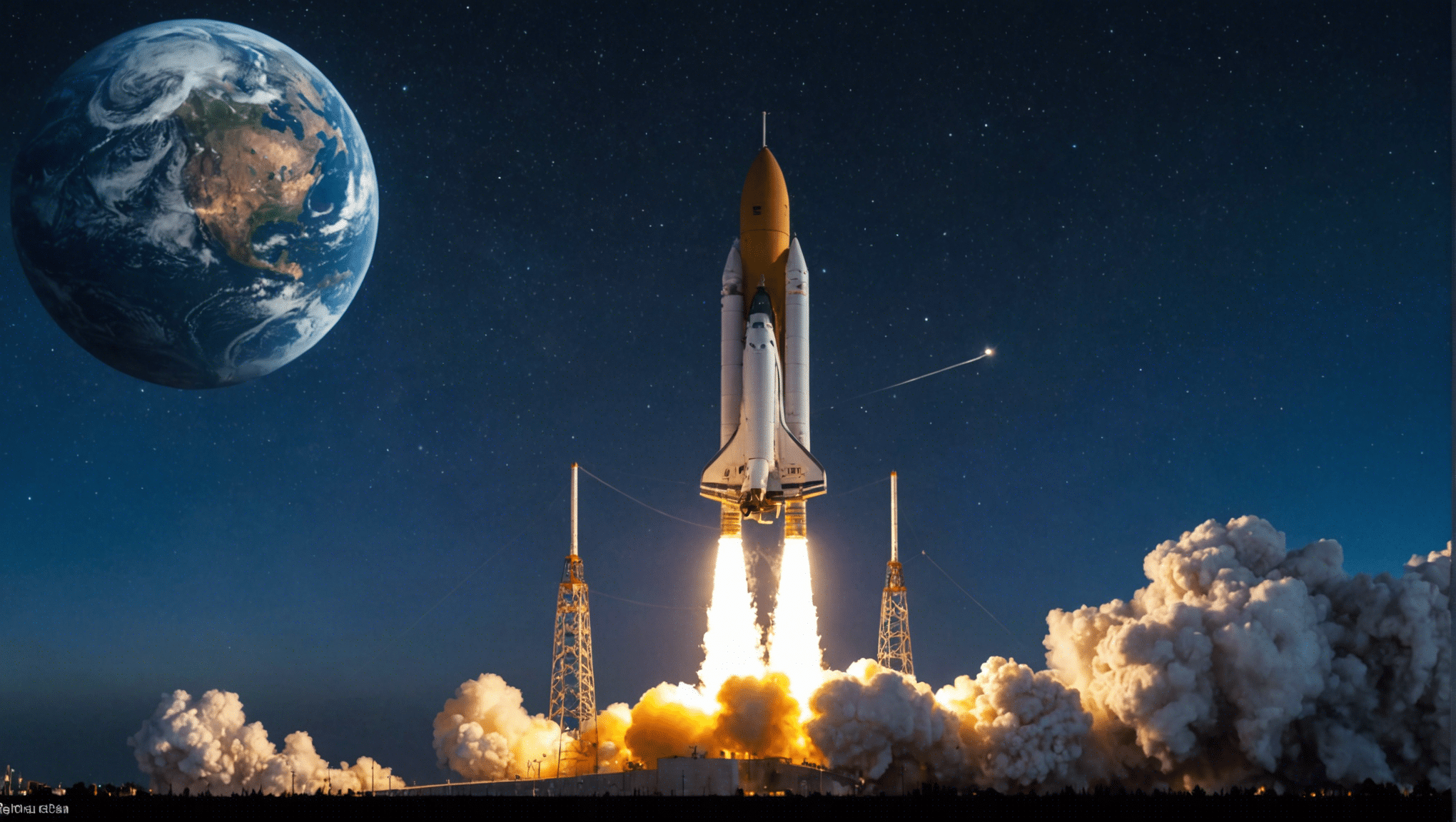Unraveling the Enigma: The Origins of Europe’s ‘Ariane’ Rocket Name

Immerse yourself in the history of European aerospace and discover the fascinating origins of the enigmatic name “Ariane” for European rockets. A captivating journey behind the scenes of the creation of this emblematic symbol of the conquest of space.
Mythological origins of the name Ariane

The Ariane legend
The Ariane rocket takes its name from Greek mythology, more specifically from the story of Ariane, daughter of King Minos of Crete. Ariadne’s story is often associated with the labyrinth and the Minotaur, but it’s her role in the legend of Theseus that is particularly significant.
Ariadne and Theseus: an unbreakable bond
Ariadne is famous for having helped Theseus defeat the fearsome Minotaur, a half-man, half-bull creature. To do so, she gave him a thread (Ariadne’s famous “thread”) so that he could find his way through the labyrinth and emerge victorious. This assistance enabled Theseus to triumph and save his life, strengthening the bond between the two characters.
The symbolism behind the name
In choosing the name Ariane for its rocket, Europe has chosen to evoke the notion of help, guidance and support in complex and extraordinary undertakings. Just as Ariane offered help to Theseus to overcome a seemingly insurmountable challenge, the Ariane rocket embodies this idea of assistance in conquering technological and space challenges.
A reference to perseverance and victory
The figure of Ariane also symbolizes perseverance and victory in the face of adversity. Her ingenuity and bravery enabled Theseus to triumph, reminding us that obstacles can be overcome with determination. Similarly, the Ariane rocket embodies determination and success in space missions, defying the limits of space exploration.
Homage to the Greek princess

The Ariane rocket takes its name from the Greek mythological princess Ariadne. Known for her role in the famous myth of the Minotaur, this emblematic figure inspired the name of one of the world’s most powerful rockets.
The legend of Ariadne
In Greek mythology, Ariadne is the daughter of King Minos of Crete. She is best known for helping Theseus defeat the Minotaur. Ariadne provided him with a thread which he unwound behind him in the labyrinth, enabling him to find his way back after defeating the creature. This courageous, determined figure embodies both strength and intelligence.
The symbolism behind the name
In naming its rocket Ariane, the European Space Agency (ESA) pays tribute to the nobility, bravery and determination associated with the Greek princess. Just as Theseus was able to triumph over the Minotaur thanks to Ariane’s invaluable assistance, the Ariane rocket is a symbol of technological progress and the conquest of space.
European pride
The choice of the name Ariane for the European rocket also reflects Europe’s determination to play a major role in space exploration. By celebrating emblematic figures of European culture, ESA underlines the importance of its contributions to the conquest of space, and reinforces the sense of unity within the continent.
In conclusion, the name “Ariane” for the European rocket is much more than just a name. It evokes a history rich in symbols and values, while embodying the spirit of conquest and exploration that has animated mankind for millennia.
Ariane and European space

Ariane and the European space epic
For almost forty years, the Ariane name has been synonymous with European space exploration. The Ariane rocket, designed by the European Space Agency (ESA), has become a symbol of Europe’s technological power and independence in space.
A tribute to Europe and its history
The choice of the name “Ariane” to designate European rockets is not insignificant. It is a tribute to Greek mythology, and more specifically to Princess Ariadne, daughter of King Minos of Crete. In the legend, Ariadne helps Theseus defeat the Minotaur by offering him a thread to find his way through the labyrinth. This link with mythology illustrates Europe’s determination to position itself as a major player capable of overcoming technological and scientific challenges.
Large-scale European cooperation
The Ariane rocket is the result of collaboration between several European countries within the ESA. Launched for the first time in 1979, it has enabled Europe to become a key player in space transportation. The different models of the Ariane rocket, from the initial version to the recent Ariane 6, illustrate the constant evolution of European technologies in the space sector.
A symbol of independence and excellence
Ariane also embodies Europe’s independence in the space field. By developing its own launch capability, Europe has asserted its sovereignty and competitiveness on the international stage. The reliability and performance of Ariane rockets make them essential vectors for European and international space missions.
A promising future for Ariane
With numerous projects underway, including the development of the Ariane 6 rocket and participation in ambitious exploration missions, Ariane will continue to play a central role in European space exploration. A symbol of technological excellence and cooperation between nations, Ariane remains a strong link between Europe and space, opening the way to new discoveries and ever more exciting challenges.
Strategic choice of name for European rockets
Ariane: Mythological inspiration
The choice of the name “Ariane” for European rockets was not made at random. Indeed, the name draws its inspiration from Greek mythology. Ariadne, daughter of King Minos of Crete, is said to have helped Theseus defeat the Minotaur by providing him with an Ariadne’s thread to find his way through Daedalus’ labyrinth. This link with courage, strategy and success certainly influenced the choice of the name to symbolize European space launchers.
Ariane: a symbol of European cooperation
The Ariane rocket also embodies European cooperation in space exploration. First launched in 1979, Ariane is the fruit of collaboration between several European countries, including France, Germany, Italy and other partners. This joint project has enabled Europe to position itself as a major player in the space sector, and to compete with American and Russian programs.
Ariane: a strategic choice for visibility
The name “Ariane” was also chosen for reasons of visibility and international recognition. Indeed, this short, sonorous, easy-to-remember name has contributed to the reputation of European rockets on the world stage. What’s more, by referring to a character from Greek mythology, Ariane arouses the curiosity and interest of the public, reinforcing the appeal of European space missions.
Ariane: Towards new horizons
Today, the name “Ariane” is inextricably linked with the history of European space exploration. A symbol of cutting-edge technology, international cooperation and scientific ambition, Ariane rockets continue to carry satellites and cargo into space, opening the way to new discoveries and new horizons. With its various versions and evolutions, Ariane remains a source of pride for Europe, and continues to leave its mark on the history of astronautics.
A symbol of strength and determination
Ariane: a historical legacy
Ariane, the emblematic name of the European space program, embodies much more than just a rocket. It symbolizes the power, perseverance and determination of the scientists and engineers who have worked for space exploration. Its history is closely linked to the conquest of the stars and mankind’s flight towards the celestial infinite.
A tribute to Greek mythology
The choice of the name “Ariane” to designate this rocket is not insignificant. It refers directly to Greek mythology, where Ariadne was a Cretan princess famous for her courage and ingenuity. By battling the Minotaur and helping Theseus out of the labyrinth with a sturdy thread, Ariadne embodies strength and intelligence, essential qualities for any major undertaking such as space exploration.
Strength for space ambitions
With its robustness and reliability, the Ariane rocket represents the brute force needed to propel satellites and payloads beyond our atmosphere. Each lift-off is a demonstration of power and technological mastery, underlining Europe’s determination to become one of the world’s great space powers.
Determination at the heart of every mission
Every space mission involving an Ariane rocket is the fruit of years of hard work, in-depth research and colossal efforts. The teams involved in each launch demonstrate unfailing determination, constantly pushing back the boundaries of science and technology to reach new horizons. Ariane embodies the commitment and tenacity needed to meet the challenges of space.
A timeless symbol
Over the decades, the Ariane rocket has become a timeless symbol of excellence and innovation. Its name resonates like a hymn to discovery, curiosity and human daring. Ariane is the story of a collective adventure, driven by men and women with a passion for exploration and a desire to push back the limits of the universe.
Ariane: the star that guides our dreams of stars
In conclusion, Ariane is much more than just a space launcher. It is the living symbol of human strength and determination, of the aspiration to the unknown and the eternal quest for new horizons. So every Ariane launch is a poignant reminder of our collective ability to reach for the stars and realize our wildest dreams.
Ariane: a name steeped in history and power
Ariane is an evocative name that has been synonymous with European space exploration for decades. But what is the origin of this name that seems so charged with history and power?
A mythological heritage
The choice of the name Ariane to designate European rockets is not insignificant. Its origins lie in Greek mythology. Ariadne was a Cretan princess, daughter of King Minos, known for her role in the myth of the Minotaur. In particular, she is famous for having provided Theseus with the Ariadne thread that enabled him to leave the labyrinth after killing the Minotaur. This choice of name suggests the ability to make one’s way through complex challenges and find clever solutions.
Symbolic of power and mastery
The name Ariadne also evokes a certain power and mastery, in reference to the strength and determination shown by the princess Ariadne in mythological tales. This symbolism is perfectly suited to the field of space exploration, where the power of rockets and the precision of their trajectory are essential to the success of complex missions.
A strong European identity
By choosing the Ariane name for its rockets, Europe is also affirming its identity and cultural heritage. By associating modern technological achievements with emblematic figures of European culture, such as Ariane, the European Space Agency strengthens its roots in a common heritage, while projecting an image of modernity and excellence.
The name Ariane, a symbol of history and power, embodies the tradition, strength and boldness needed to conquer new horizons in space.